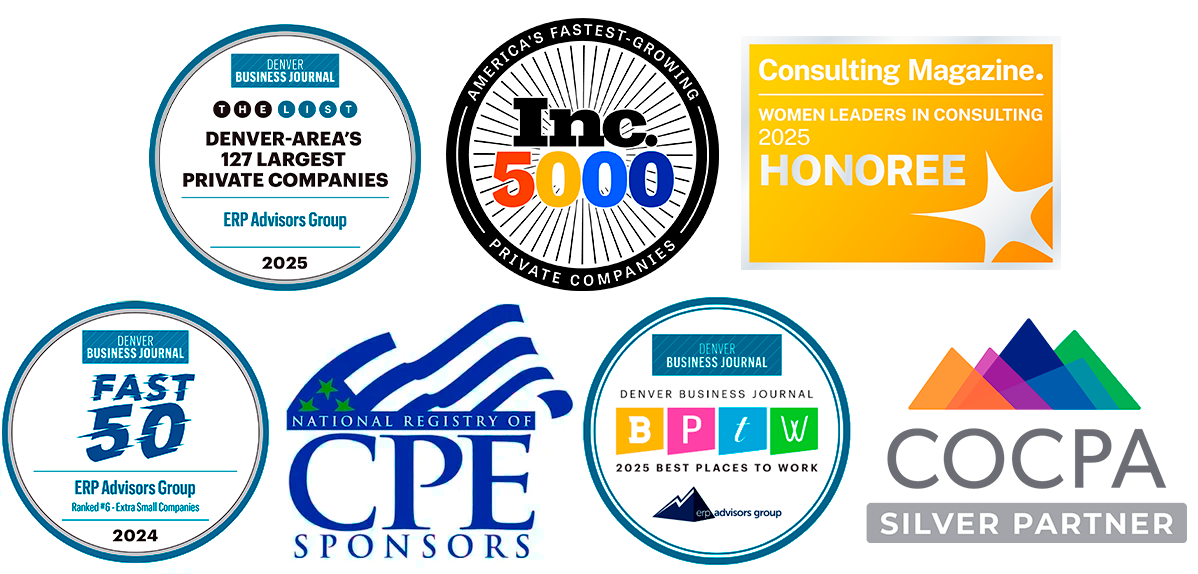
Are you feeling confused about watching ERP software demonstrations? Once you decided to change software, scheduling ERP demos might have seemed like the next logical step! Without the right approach, though, seeing demonstrations can lead to more questions than answers. This can make it difficult to determine which ERP product truly fits your business’s needs.
How to Navigate ERP Demos Successfully
Once you decided to change software, scheduling ERP demos might have seemed like the next logical step! Without the right approach, though, seeing demonstrations can lead to more questions than answers. This makes determining which ERP product truly fits your business’s needs difficult.
In this article, EAG will dispel the confusion surrounding software demos and help project sponsors get the most out of the demonstration process.
Why Do Businesses Participate in Software Demos?
Software demonstrations can easily turn into product “beauty pageants” where only the glitz and glam is on display for all to see. Unfortunately, selecting the right software for your business isn’t skin deep and does not always result in selecting the “prettiest”, most modern solution.
Software demos allow project sponsors to determine if the solutions being considered can deliver the functionality their business needs. Instead of approaching demonstrations like a beauty pageant, consider them ERP vendor “exams.” Demonstrations force vendors to showcase the exact capabilities you are looking for, and when done well, expose both the systems strengths and functionality gaps.
When demonstrations are conducted using best practices, it helps even the playing field for all vendors. Vendors shouldn’t win your business with just a good sales pitch, make them prove it through demos!
Document Your Needs Before Starting the Demo Process
Before jumping into scheduling demonstrations with all of the big-name vendors, you should meet with Subject Matter Experts (SMEs), project sponsors, and other key stakeholders to carefully document your requirements.
Understanding your needs at a deeper level before beginning the demonstration process will ensure you are not only talking to the right vendors, but that those vendors showcase what is relevant to your organization (rather than just what they are best at).
Even if you think your need for an industry-specific ERP will cut down on the complexities of the ERP selection process, the reality is, your business is unique! And those differences will likely go beyond basic industry functionality in some areas of the business.
We highly recommend sending your needs to potential vendors prior to scheduling any demos. With your “functionality checklist” in hand, the vendor can confirm what is achievable and what may not align in the system before scheduling a demo or wasting anyone’s time. And the demos will go much smoother if the vendor can cater to your needs.
Prepare A Demo Script for Vendors
Once you have gathered your requirements, it is important to create a “demo script.” This is the most effective way of communicating what you need to see from a system during the demo.
The most effective way to create your demo script begins with your selection project team creating the framework. From there, these Subject Matter Experts (SMEs) can complete the requirements for their areas of the business. Once documented, the team should interview other key stakeholders in other areas of the business to ensure the entire scope has been addressed. The best practice of Interviewing subject matter experts, rather than sending the document around for them to fill out, maintains structure across the document and prevents confusion or disorganization.
The Importance of “Mini Demos” Before Full Demos
Instead of attending a full day demonstrations with every vendor you are considering, we recommend vetting them first through a “mini demo” process. Even a shortlist of only four or five platforms could equate to 40 hours of full day demos. And with that many features packed into a week’s worth of meetings, solutions can blur together.
There is also no need to do a full day demo with each vendor on your shortlist. The mini demos (only about two hours) will expose the blatant holes present in each vendor’s system and help you trim your list. Not every platform on your shortlist is going to be capable of handling your business’s needs, so it is better to narrow your options based on how the core ERP fits your needs. Additionally, this is the time to determine if the look and feel of the system is right for your business. If you don’t like the user experience, that is an early indicator the system is not the right fit.
Keep Mini Demos Short and Limited
Since these are the initial demos to narrow your list of systems, there is no need to involve a large number of people in the process. Save your team members’ time and keep the team that is involved during mini demos tight. Project sponsors lose credibility when they invite their whole team to a demonstration for a solution that clearly won’t work for them!
Who Should We Bring?
Only major stakeholders from different functional areas of the business should be involved in mini demos. Likely between three and six individuals. That team will oversee the decision on which vendors will move on to final demos for the entire selection team to see.
Determine What Vendors to Include at Each Step
ERP Advisors Group’s proven methodology has identified the 3 stages of demonstrations. At each stage, the project sponsor uses clear criteria to determine who moves on and more access to the team. These stages save our clients substantial time during their ERP selection.
- Mini-Demonstrations: Typically, mini demos include three to four vendors from a shortlist determined by a request for proposal (RFP) or request for information (RFI). Mini demos take place over three to four hours.
- Final Demonstrations: Only two (or maybe three under special circumstances) vendors should participate in the final demonstration stage. These are full-day, eight-hour demonstrations, so it is vital to only bring the vendors who are the best fits.
- Deep Dive Demonstrations: The deep dive demonstration should only include your final choice as part of final due diligence. This demonstration will dig into deeper functionality to ensure it works for the specific use cases you will need, explore alternative solutions for gaps in functionality, and allow you to evaluate any third-party systems needed and ensure the system can meet every need you are requesting.
Utilizing Scorecards
You team should have a standardized form of notetaking or information gathering during software demonstrations. This practice allows your team to compare each solution using the same criteria, from look and feel of the system to satisfaction with specific capabilities.
ERP Advisors Group provides a scorecard system for our clients, where each attendee grades the platforms based on how they address their needs in various categories. Then, you can average out the scores provided by the entire team and compare which solutions had the most positive feedback overall. You can also use this method to determine if scores from specific departments carry more weight when evaluating their area of expertise (i.e., an accountant evaluating financial close capabilities versus an operations manager). This helps tremendously in deciding what software solutions should move forward to the next stage of demonstrations!
Should We Include 3rd Party Solutions in our ERP Demos?
The short answer is yes. It is important to see how a 3rd party solution, such as a warehouse management or project management tool, will integrate into your new system before making a decision on what will work best for your business.
However, it is important to introduce the 3rd party solutions at the right time. Bringing in a 3rd party vendor during the final demonstration stage can complicate the process and make coordination between to two vendors difficult. Their involvement should be reserved until the final deep dive demonstrations. Multiple 3rd party solutions may work for your niche needs for a particular business function, so the core ERP platform should be your first priority before muddying the decision with other applications. Then, evaluate what 3rd party solutions integrate well into your finalist platforms and utilize that in your final decision-making process!
As a vendor, if you bring a 3rd party solution in too early to the demo process, you risk that vendor doing a poor job or not living up to the standard of the demo you were prepared for, ultimately weakening your case and potentially turning the prospect off from your product.
Conclusion
Software demonstrations are daunting. Whether it is deciding which vendors to bring to table or evaluating how the demonstrations went, the process requires deep involvement and a variety of steps to make sure it goes well. But you don’t have to face demos alone! ERP Advisors Group facilitates software demonstration for businesses on a daily basis and understand how to help you get the most from the process. Schedule your free introductory consultation today!





